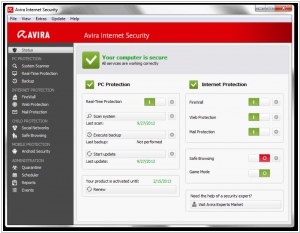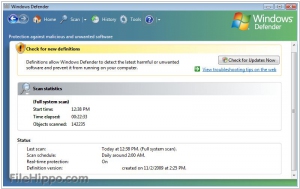Avira vs Microsoft Defender
August 06, 2023 | Author: Michael Stromann
Avira and Microsoft Defender are both antivirus software solutions, but they have distinct differences in their features and capabilities. Avira is a well-established antivirus program known for its strong malware detection and protection. It offers a range of features including real-time scanning, web protection, email scanning, and a robust quarantine system. Avira is highly customizable, allowing users to configure various settings according to their preferences. On the other hand, Microsoft Defender, formerly known as Windows Defender, is an antivirus solution built into the Windows operating system. It provides real-time protection against malware, spyware, and other malicious threats. Microsoft Defender is lightweight and integrates seamlessly with the Windows ecosystem, providing automatic updates and frequent security patches. While Avira is a dedicated third-party antivirus software, Microsoft Defender is a built-in security solution that comes pre-installed with Windows.
See also: Top 10 Antivirus Software
See also: Top 10 Antivirus Software
Avira vs Microsoft Defender in our news:
2021. Microsoft launches Defender for Business
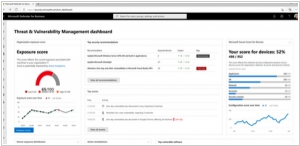
Microsoft has unveiled Microsoft Defender for Business, an innovative and affordable endpoint security solution designed specifically to cater to businesses employing up to 300 individuals. This new offering from Microsoft enhances security measures beyond traditional antivirus systems by providing next-generation protection, endpoint detection and response capabilities, threat and vulnerability management, and more. With simplified configuration and management, along with intelligent and automated investigation and remediation, Defender for Business ensures robust security. It safeguards against a range of cybersecurity threats, including malware and ransomware, across Windows, macOS, iOS, and Android devices. Available as a standalone solution, it can be obtained for a cost of $3 per user per month.
2020. Norton acquires Avira for $360M
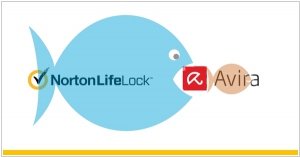
NortonLifeLock has recently announced its acquisition of the German security firm Avira in an all-cash deal valued at approximately $360 million. NortonLifeLock emerged as an independent company just last year when Broadcom acquired Symantec's enterprise security business for nearly $11 billion. Today, NortonLifeLock is a publicly traded company with a market capitalization of around $11.5 billion. Prior to the acquisition, Avira operated as a bootstrapped tech business, primarily focusing on security software for consumers. Similar to Norton, Avira offers anti-virus software among its product portfolio. Avira boasts a substantial customer base, with millions of users and approximately 30 million secured devices, including 1.5 million paying customers. Avira's successful business model revolves around a freemium approach, which Norton intends to preserve moving forward.
2020. German security firm Avira has been acquired by Investcorp
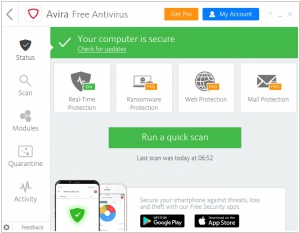
Avira, a cybersecurity company based in Germany specializing in antivirus, identity management, and other related tools for both consumers and as a white-label solution offered by several prominent tech brands, has been acquired by Investcorp Technology Partners, the private equity division of Investcorp Bank. Investcorp aims to support Avira in its strategic plan of expanding through acquisitions as part of a broader security consolidation strategy. The objective is to facilitate the growth of Avira's product portfolio and, more importantly, its global presence. Currently, Avira operates in Asia, Europe, and to a lesser extent in the US, while Investcorp's extensive business network extends into the Middle East, providing opportunities for further geographical expansion.
2019. Microsoft Defender comes to Mac
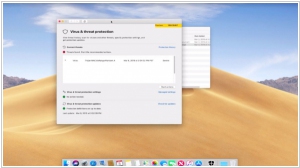
Microsoft Defender Advanced Threat Protection (ATP) will be available for Mac as well. Previously, it served as a Windows solution designed to safeguard the machines of Microsoft 365 subscribers and the assets managed by IT administrators. Formerly known as Windows Defender ATP, Microsoft has decided to drop the "Windows Defender" name since it is now accessible on Mac. Many enterprises utilize a combination of Windows and Mac machines and already equip their employees with Office. By having a security solution that covers both systems, IT departments can significantly simplify their operations, as managing security vulnerabilities on a single system is challenging enough as it is.
2016. Microsoft released Windows Defender Advanced Threat Protection
WDATP is a cloud service offered by Windows Defender, the built-in antivirus in Windows. Currently, Windows Defender primarily focuses on scanning websites and downloads to prevent hacking attempts. However, in the era of social engineering and spear-phishing, antivirus software needs to adopt a more proactive approach. Windows Defender Advanced Threat Protection (WDATP) aims to address this by shifting its attention from monitoring individual files to observing the overall behavior of a machine. Instead of simply searching for specific viruses, WDATP keeps a close watch on symptoms that indicate potential threats. For instance, if a machine starts establishing connections with unusual ports or executing uncommon PowerShell commands—behavior that deviates from the norm for most users—WDAPT alerts administrators. It provides them with an overview of both current and historical machine behavior for further analysis. Moreover, Microsoft is capitalizing on the extensive Windows user base to jumpstart its antivirus program. By analyzing millions of suspicious files from machines worldwide in the cloud, a vast centralized database is being constructed, encompassing not only malicious files but also malicious behavior.

